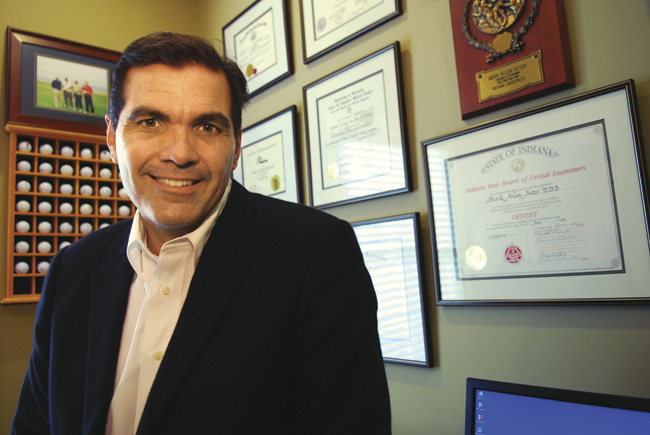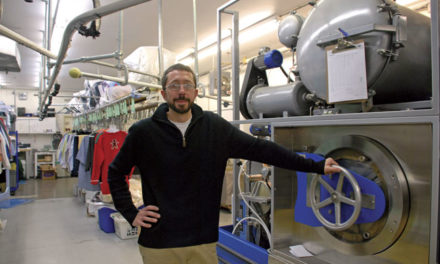BY JANET MANDELSTAM
You may not see many ribbons or bracelets or hear of any 5K walks to raise awareness of oral cancer, but a group of Bloomington-area dentists nonetheless wants to make sure that the local population knows how to recognize and possibly prevent this increasingly prevalent form of the disease.
The National Cancer Institute predicts that more than 40,000 people will receive a diagnosis of oral cancer in the U.S. this year, and that 7,850 will die.
Who are they? Periodontist Mark Sutor says that while some people may be genetically susceptible to oral cancer, “two classes of people are most likely to get the disease: smokers, who smoke more than a pack a day, and chronic alcohol users.”
Reducing those numbers is the goal of the area dentists and hygienists who offered free oral exams to the public in September 2012 on World Oral Health Day in what Sutor hopes “will be an annual event.”
They were looking for changes in the tissue of the mouth, changes in the color of the tongue, and other symptoms that could indicate a cancerous or precancerous condition. The most common sites for oral cancer, Sutor says, are the tongue, the floor of the mouth, and the soft palate (or back of the roof of the mouth). “It can be a very disfiguring disease,” he says. “Some people lose part of their jaw or face.”
Patients likely would have seen their regular dentists before seeing a periodontist like Sutor. “We do a pretty thorough exam looking for lesions that might be precancerous,” says Bloomington dentist Todd Whitlock. If lesions are found, “then we would refer them for a biopsy.”
When Sutor gets such a referral, he says, “My role is to diagnose the disease and find medical care for the patient.” Treatment options include surgery, chemotherapy, and radiation.
Men are more than twice as likely as women to be diagnosed with oral cancer, and men older than 50 are the most likely. But those numbers are shifting. “Unfortunately, women are slowly creeping up statistically,” says Sutor. “And sadly,” adds Whitlock, “we’re noticing a higher population of younger men chewing tobacco.”
In sum, Sutor says, there’s a three-pronged approach to reducing your chances of an oral cancer diagnosis: Don’t smoke or chew tobacco; if you drink alcohol, do so in moderation; and see your dentist.







